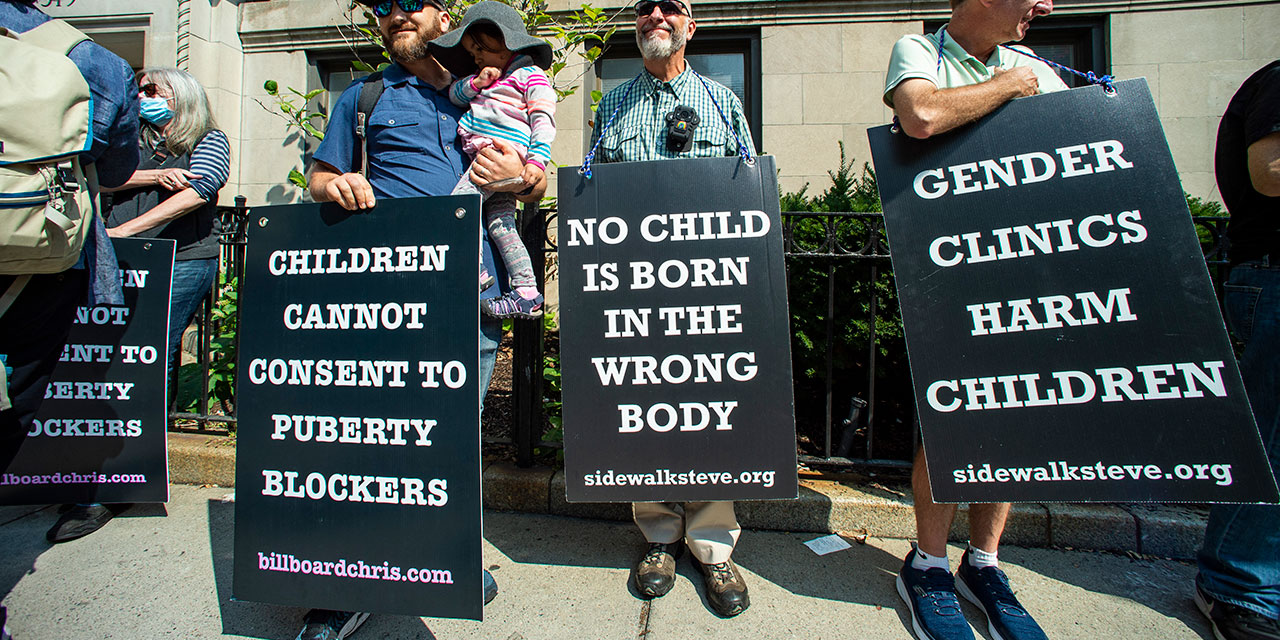In November, former congressman Lou Barletta sounded the alarm on Kooth, a UK-based, for-profit mental-health program for children that received a $3 million grant from the Pennsylvania state government. While the platform’s parent company describes Kooth as “[a] judgement-free forum to get advice, help others and share your story,” its chat function is ripe for abuse, raising serious questions about Pennsylvania’s multimillion-dollar investment in the program.
The Kooth app allows children to log on anonymously and exchange messages with a mental-health counselor; in most Pennsylvania school districts, access is restricted to those aged 14 and older. As Barletta notes, Pennsylvania does not require mental-health providers to disclose a patient’s mental-health records to his parents after the patient turns 14—meaning that the app could be used as “a vehicle to take away parental rights and try to keep even more information about their children from the parents.” Given that even left-of-center politicians like Governor Kathy Hochul and Mayor Eric Adams have admitted the harms of social media for children, it’s puzzling that the Pennsylvania legislature would outsource some pediatric mental-health services to an app with a social media–style chat function.
Another troubling feature of Kooth is the app’s discussion boards, where kids can chat with “peers” about their difficulties. It’s questionable whether struggling children need this feature, as kids are already inundated with messaging apps, social media feeds, and endless sources of online chatter. More concerning, however, is Barletta’s discovery that Kooth does not verify users’ identities. According to Barletta, anyone can enter basic contact information, choose a participating school district, and communicate freely with the suffering minors on the Kooth platform. The platform also encourages secrecy, as Barletta claims that Kooth will inform only the school district (not a child’s parents) if a user says anything troubling.
Kooth’s website admits many of these disturbing features. The FAQ page concedes that the app encourages children not to disclose their Kooth use to their parents. It notes that Kooth has no age- or identity-verification system and that its users are anonymous, and even admits that it is “possible for adult individuals to sign up with an account where they are claiming to be a young person.” While the site claims all posted content is moderated, these policies could readily be abused, and Pennsylvania school boards and the state legislature never formally discussed the risks associated with introducing such an anonymized platform to school-age children.
Moreover, progressives in other states have been willing to use platforms like Kooth for political and ideological purposes. In Arizona, for example, the state department of education linked on its website to “Q Chat Space,” which facilitated anonymous conversations between children and adults about homosexuality and gender identity. Left-wing therapists could use Kooth to propagate radical racial and gender ideology to children, particularly given Kooth’s policy of withholding information from parents.
What are Pennsylvania’s motives in boosting this potentially destructive tech initiative? Are they attempting to silo children with mental-health issues onto a poorly vetted social media platform, where abusive users can groom them and encourage them to adopt various falsehoods about their sexual identities? Is it sheer incompetence, a failure of state legislators to research the programs they fund? Whatever the answer is, it won’t matter much to the vulnerable Pennsylvania children whom the app drags deeper into despair.
Photo: AntonioGuillem/iStock/Getty Images Plus




